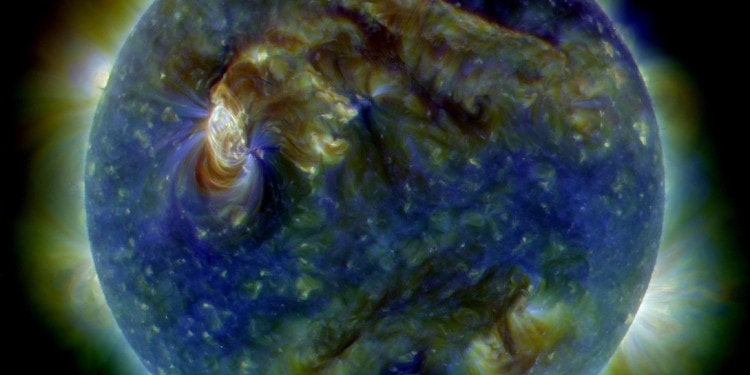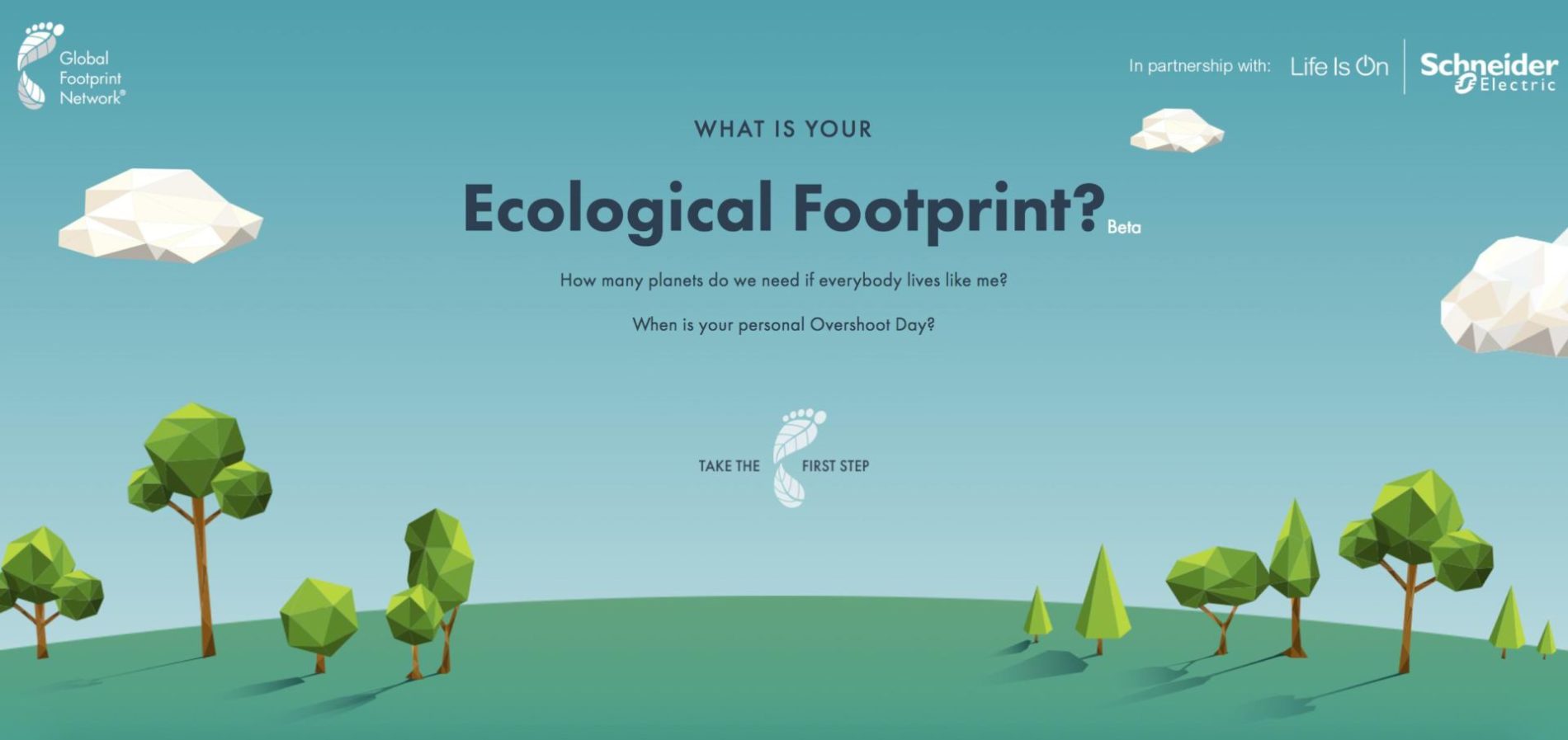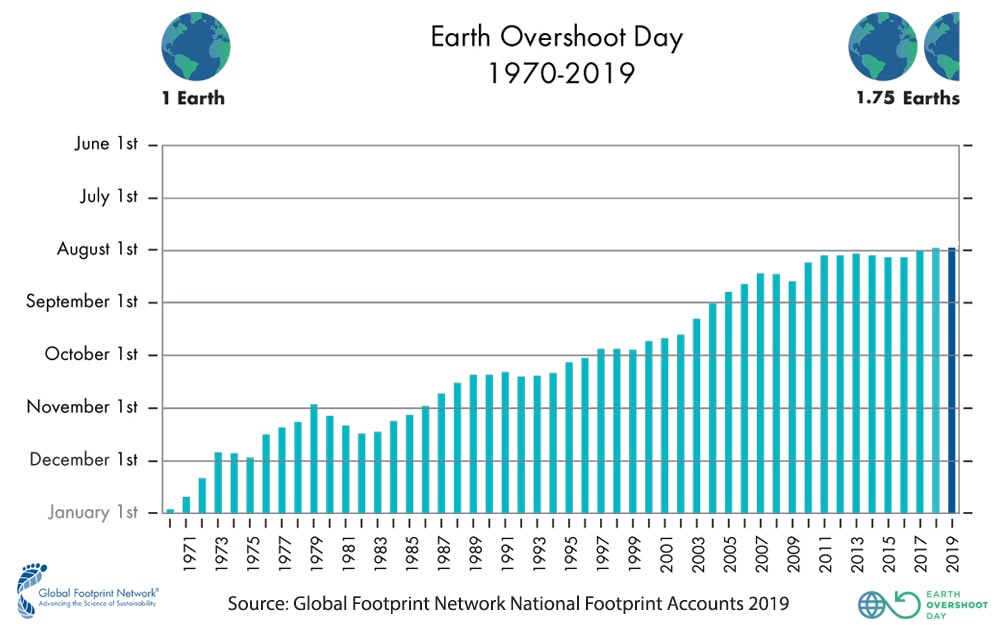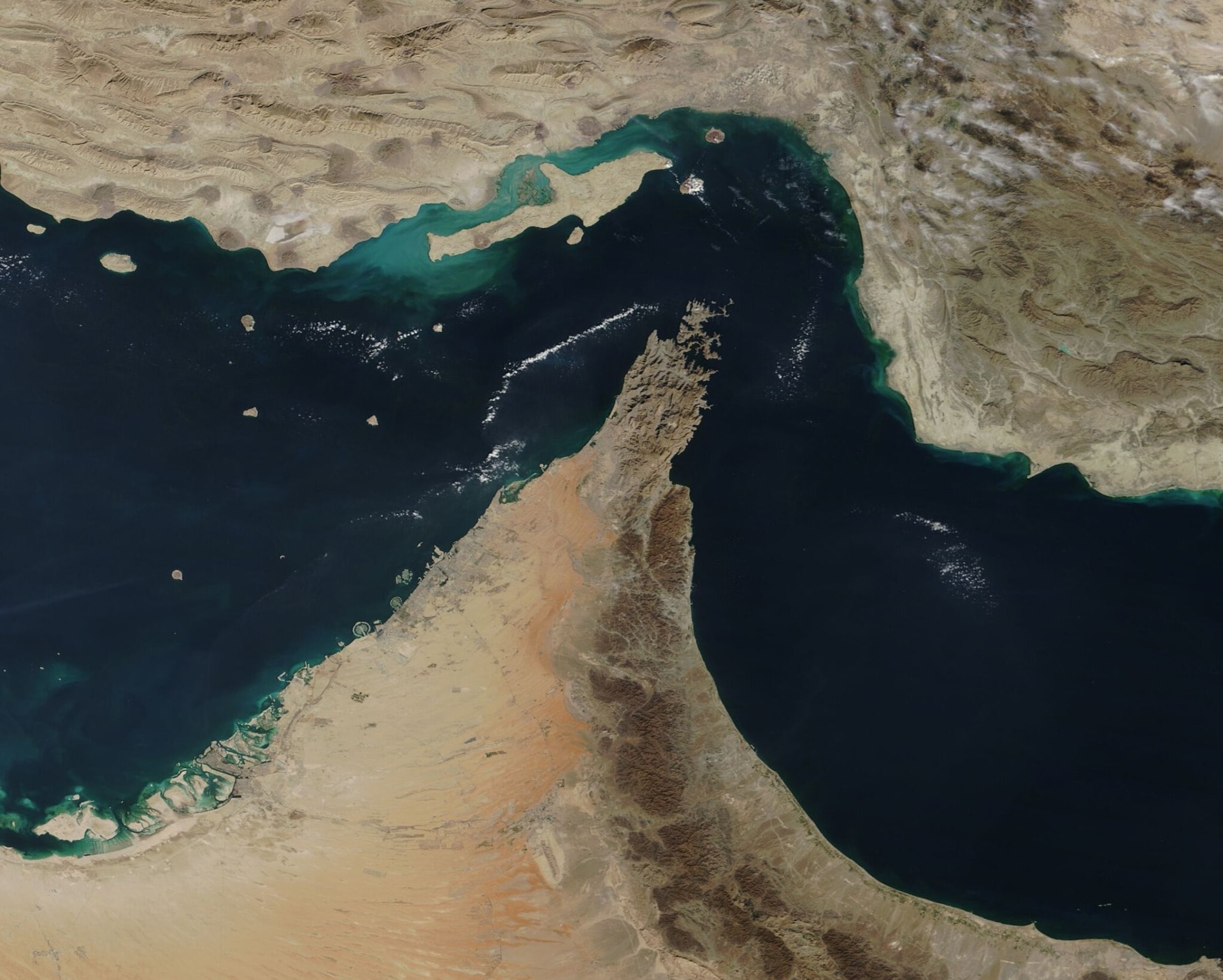29 July 2019 is the earliest Earth Overshoot Day ever registered to date, and every year it comes earlier. This article, authored by Eduardo Lubrano, is part of an editorial collaboration with Impakter Italia.
There is a site, footprintcalculator.org, in which you can calculate your ecological footprint with respect to the Earth’s resources. It tells you how many planets would be needed if everyone lived like you and me. To find out your personal ecological footprint, all you need to do is answer a series of questions that are rather simple because they concern our daily life: what kind of meat we eat and how often, what energy we use at home, how much we use the car, electric appliances and so on.
It looks like an innocent little game but in the end the answer can be shocking. But also very useful.
Because we’re in the red. The Earth is in the red and its inhabitants …… also. As of 29 July 2019 we no longer have all the natural resources that the Earth can regenerate. It’s called Earth Overshoot Day. And it has been calculated for thirty years and every year the day of irreversible red appears ever earlier in the year despite all the alarms and efforts. Obviously not heard or followed enough.
What the Global Footprint Network, the international research organization that keeps the accounts of the exploitation of natural resources, calls man’s “ecological footprint” is exactly what each of us does to exhaust the planet’s resources before it has had time to regenerate them.
By 29 July 2019, Mankind will have used up its allowance of natural resources such as water, soil and clean air for all of 2019. It comes earlier every year. In 1993, it fell on October 21, in 2003 on September 22, and in 2017 on August 2.
In the presentation of the Earth Overshoot Day 2019 you also find a ranking of the less virtuous countries: Italy, for example, had reached its 2019 Overshoot Day much earlier than the world average, on May 15th. To satisfy the consumption of Italians, we need the resources of 4.7 countries like Italy.
Only Japan in the world consumes more in relation to what it produces: 7.7 times. Then come Switzerland (4.6), Great Britain (4.0) and China (3.8).
On average, the world will consume 1,75 planets in 2019.
In absolute terms, the country that consumes the most is the United States. If the whole world consumed like them, we would need the resources of 5 planets.
Featured Image: The Earth an Sun 1 August 2010 Impakter Italia.











